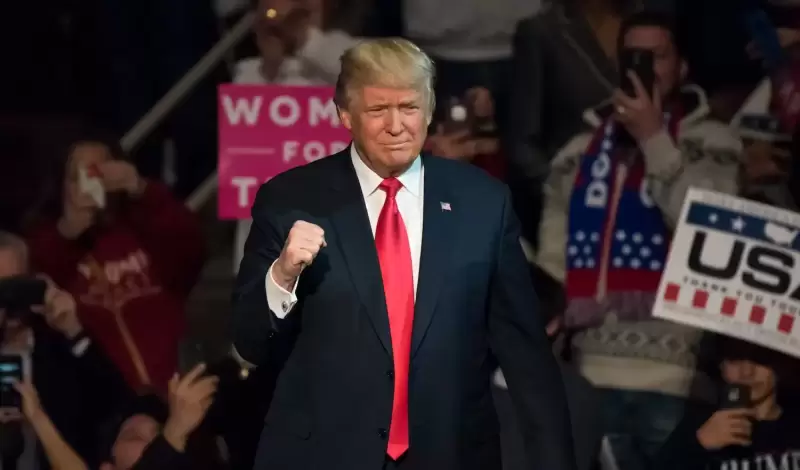 |
|
 |
|
 |
|
 |
|
 |
|
 |
|
 |
|
 |
|
 |
|
 |
|
 |
|
 |
|
 |
|
 |
|
 |
|
Cryptocurrency News Articles
Europe Hesitates on Bitcoin as U.S. Pushes Forward
Mar 30, 2025 at 12:00 pm
While the U.S. is making bold moves to integrate Bitcoin into its financial strategy, Europe's institutions remain hesitant.

While the U.S. is making bold moves to integrate Bitcoin into its financial strategy, Europe's institutions remain hesitant, reports Bloomberg.
Despite America's push to establish Bitcoin as part of its national reserves and President Trump's executive order directing authorities to use seized crypto for federal reserves, major financial players in Europe have shown little interest in following suit. More than three weeks after the order, no major European companies have announced plans to hold Bitcoin in their treasuries.
This lack of involvement is surprising considering the interest in cryptocurrencies among Europeans, as evidenced by the popularity of crypto platforms like Bitpanda. A survey by the platform even suggests that financial institutions in the region may be underestimating investor demand by up to 30%.
A major factor hindering European institutions is the regulatory uncertainty. Unlike the U.S., where policymakers are shaping clear guidelines for Bitcoin's role, Europe's regulatory environment is fragmented, rendering institutional adoption more challenging.
"A major reason why European corporations have yet to embrace Bitcoin as a reserve asset is the lack of direction from authorities on how to use it," said Elisenda Fabrega, co-founder of blockchain startup Brickken.
While Bitcoin has consistently outperformed traditional investments and offers a hedge against inflation, European firms have been slow to acknowledge its potential. Only a handful of companies, including BNP Paribas, 21Shares AG, VanEck Europe, and Bitpanda, have disclosed any involvement in the crypto sector.
Analysts at Bitfinex further note another obstacle—Europe's conservative investment culture. With strict mandates and pension funds focused on minimizing risk, Bitcoin allocations have remained minimal.
In contrast, the U.S. has witnessed significant interest in Bitcoin ETFs, with products like the iShares Bitcoin Trust providing a convenient avenue for institutional investment. Additionally, America boasts a deeper and more liquid capital market, facilitating greater institutional involvement in cryptocurrencies.
However, there are signs that sentiment could shift. BlackRock recently launched a Bitcoin exchange-traded product (ETP) in Europe, potentially paving the way for more institutional engagement.
But for now, the region lags behind, with regulatory complexity and risk aversion slowing Bitcoin's integration into mainstream finance. In the U.S., the institutional adoption of Bitcoin is proceeding at a faster pace, but even there, the involvement of mega-cap companies is limited, despite President Trump's executive order. Nonetheless, the interest and activity in the crypto space are evident.
Disclaimer:info@kdj.com
The information provided is not trading advice. kdj.com does not assume any responsibility for any investments made based on the information provided in this article. Cryptocurrencies are highly volatile and it is highly recommended that you invest with caution after thorough research!
If you believe that the content used on this website infringes your copyright, please contact us immediately (info@kdj.com) and we will delete it promptly.
-

-

-

- Binance and Kraken Delisted Tether's USDt (USDT) Spot Trading Pairs in the EEA to Comply with Markets in Crypto-Assets Regulation (MiCA)
- Apr 02, 2025 at 03:55 am
- The European cryptocurrency market is undergoing a profound transformation as major exchanges, led by Binance and Kraken, implement significant changes
-

-

-

-

-

- Bitcoin (BTC) price breaks above $85,000 as institutional investors continue to accumulate the digital asset
- Apr 02, 2025 at 03:45 am
- The price movement comes as markets anticipate President Donald Trump's upcoming tariff announcement, with some reports suggesting the measures may be less severe than initially feared.
-



























































